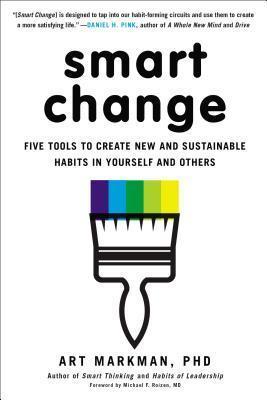After we’ve spent all our money on gifts and stuffed ourselves to the brim with endless holiday treats, it’s no wonder many of us see the new year as an opportunity to become a little less broke and little more fit. But come next December, most of us will find ourselves back in the same routine, pining for another opportunity to start fresh.
We’ve all heard the saying, “Insanity is doing the same thing over and over again and expecting different results.” So why then, year after year, do we make New Year’s resolutions that, for most of us, won’t last through February? How can we end this cycle of insanity?
University of Texas at Austin psychology professor Art Markman says it’s all about training our brains to replace old habits with new habits — which is easier said than done, “especially when we’re fighting against millions of years of evolution that have created mechanisms that want us to maintain our behaviors.”
“The more you understand about how the brain motivates you to act, the more effectively you can help yourself to act in new ways,” says Markman, who taught us a little more about habits and offered us some advice on how to be more successful with our New Year’s resolutions in the Q&A below:
How long does it take to form a habit?
The answer to every difficult psychology question is “it depends.” In this case, habits are memories that relate the situation you are in to the behavior you want to perform. When you are faster to remember what to do than to have to think about what to do, you have a habit.
When the new situation is very distinctive, there is little to compete with the new habit in memory, and you can learn it quickly. The worst-case scenario for habit formation is learning basic math facts. All of them are very similar (involving the same digits), but requiring different answers, so it can take you months or years to get enough repetitions to form a habit.
Most things in your life fall in between. You can often form a good habit in a new situation in 4-6 weeks.
Why do old habits die hard?

Because habits are memories, they are retrieved from memory automatically. That is, things come out of memory, just because you are in a situation that calls them to mind. As a result, you are constantly being reminded of what you used to do in that situation in the past.
When that old behavior was also enjoyable, then being reminded of the action creates a real desire to perform that action again. That is what happens with the habits we find hardest to change.
What’s happening in our brain when we get cravings or fall back into old routines?
Cravings are interesting. They happen when the habit system suggests a desirable action, but you choose not to perform it. For example, if you are dieting, and routinely eat a piece of chocolate in the afternoon, your habit system will suggest eating a piece of chocolate, and you will have to explicitly resist the urge to do so. Your motivational system will continue to remind you that you have not yet achieved your habitual goal by creating a craving.
The best way to avoid the effect of cravings is to engage another goal and do something else.
“The more you understand about how the brain motivates you to act, the more effectively you can help yourself to act in new ways.”
Art Markman, UT Austin Pyshcology Professor
What’s the best way to ditch bad habits?
Habits aren’t really broken, they are replaced. That is, the memory of the old action will continue to be retrieved and to suggest itself as an option unless you create competing memories. So, for each situation in which you used to engage the old behavior, you now need to find a new behavior to perform so that yourhabit system will be reminded of a different action.
Why do we often fail at keeping our New Year’s resolutions?
There are two big problems with New Year’s resolutions. First, we often state them very abstractly. Behavior change is actually quite specific. You need to engage in particular behaviors at particular times. So, you need to do some work to create a specific plan.
Second, you often focus your resolutions on behaviors you want to stop doing. But, the habit system can’t learn not to dothings. It can only learn behaviors you perform. So, you need to focus on what you will do instead of the old behavior rather than just trying to stop yourself from doing the wrong thing.
What should we keep in mind when making a resolution — or setting any goal — that will help us be more successful?

When trying to achieve any goal, you need to put in a lot of effort to develop a good plan for when you are going to perform actions that will help you to achieve that goal. It isn’t enough just to want to make a change. You might also want to engage with other people to have them help you along. It can be easy to talk yourself out of behavior change, but friends and family can be a source of strength.
There are a lot of great resources out there for changing behavior, including my book, “Smart Change.” Don’t feel like you have to figure it all out for yourself.
